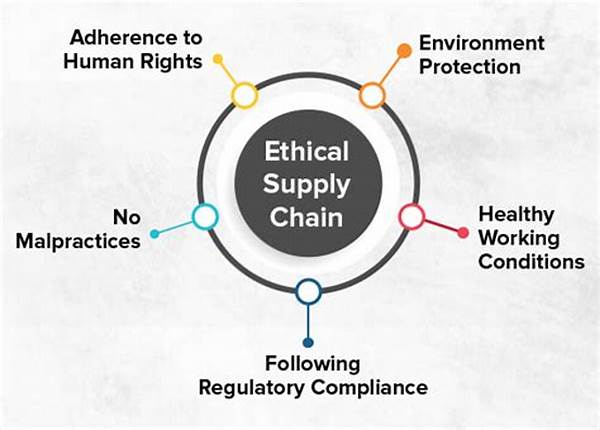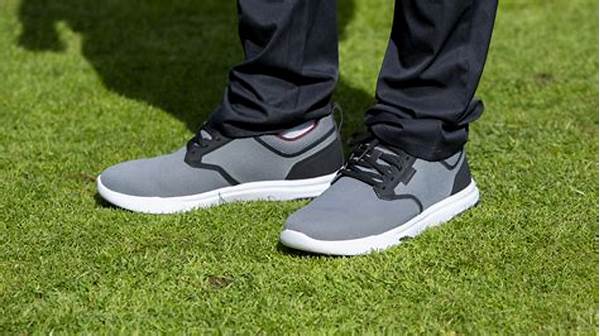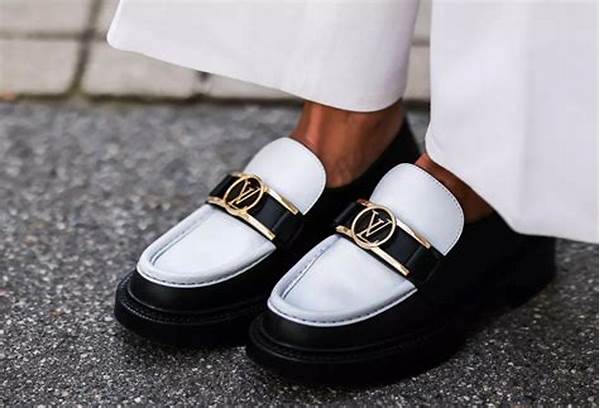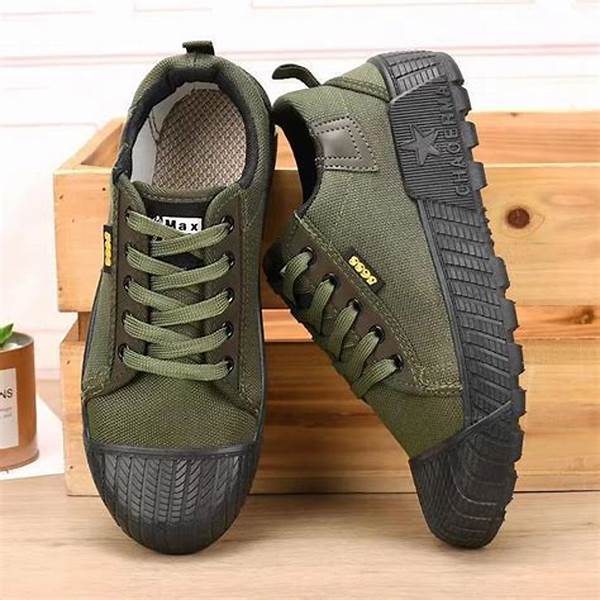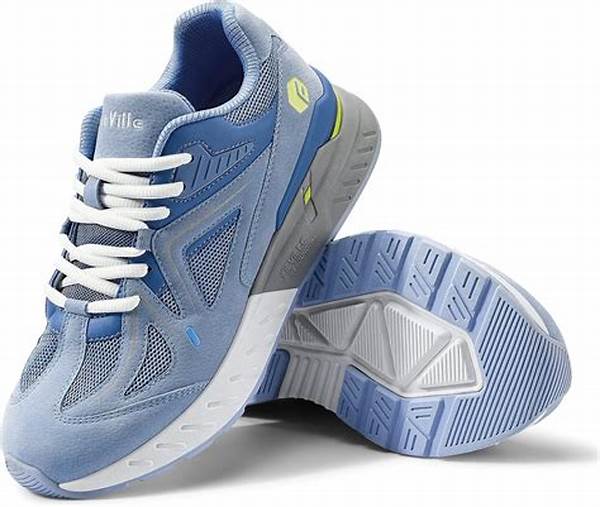Hey there, fellow footwear enthusiasts! Let’s dive into a topic that’s stepping up its game in the world of shoes – the ethical supply chain in footwear. From the sneakers on your feet to the fancy boots you wear on special occasions, every piece of footwear has a story, and it’s high time we talk about the ethical aspects behind their journey. Grab your favorite pair and let’s walk through this intriguing topic together.
Read Now : Moisture-wicking Sole Material Advancements
Understanding the Ethical Supply Chain in Footwear
When we say “ethical supply chain in footwear,” we’re talking about more than just the shoes themselves; we’re diving into the journey they take from raw material to the finished product. Consider this: where are the materials sourced? Are the people involved in making your shoes treated fairly? These questions are essential in evaluating the impact of our choices.
The ethical supply chain in footwear is all about transparency and responsibility. Brands that prioritize this approach ensure that every step in their production process is carried out with respect for human rights and the environment. They commit to fair labor practices, avoid exploitative conditions, and strive to minimize their carbon footprint. By supporting such brands, we as consumers advocate for a more sustainable and equitable world.
Moreover, the demand for an ethical supply chain in footwear is on the rise. As consumers grow more conscious of their purchasing power, they influence brands to adopt ethical practices. This shift not only benefits workers and the environment but also builds trust and loyalty among customers. After all, wouldn’t you prefer to wear shoes that reflect your values and contribute positively to the world?
The Impact of Ethical Supply Chain in Footwear
1. Consumer Awareness: Today’s buyers are informed and curious. They want to know the origins of their footwear, making ethical supply chains a selling point.
2. Environmental Responsibility: Brands focusing on an ethical supply chain in footwear take meaningful steps to lower their carbon footprint, preserving our beautiful planet.
3. Fair Labor Practices: Ensuring fair wages and working conditions isn’t just a trend; it’s a necessity for all companies prioritizing an ethical supply chain in footwear.
4. Community Support: Supporting local communities and artisans is a key component of an ethical supply chain in footwear, empowering smaller players in the industry.
5. Brand Loyalty: Consumers love supporting brands that align with their values, making an ethical supply chain in footwear a smart business move for long-term success.
Steps to Build an Ethical Supply Chain in Footwear
Stepping into the realms of an ethical supply chain in footwear isn’t a walk in the park, but it’s a journey worth embarking on. To begin with, transparency is crucial. Footwear brands should strive to map out their supply chain from start to finish and make this information accessible to their customers. This not only builds trust but also helps consumers make informed decisions.
Next comes the commitment to sustainability and fair practices. By choosing suppliers who adhere to ethical standards, brands can ensure that each component of their footwear is sourced responsibly. This includes everything from the leather or vegan alternatives used, to the rubber for soles. Each material decision impacts the overall ethical footprint of the product.
Challenges in Maintaining an Ethical Supply Chain in Footwear
Building and maintaining an ethical supply chain in footwear comes with its set of challenges. Firstly, cost is a significant factor. Ethical practices often require more investment in sustainable materials and fair labor wages, which can drive up production costs. This can be a deterrent for brands aiming to keep retail prices competitive in a saturated market.
Read Now : Professional Yet Chic Shoes
Moreover, verifying the ethics of every supplier can be complex. Ensuring compliance across all stages—from raw material gathering to the final assembly—requires rigorous monitoring and cooperation. Brands must develop robust auditing systems and partner with third-party organizations to uphold standards. Despite these challenges, the continued pursuit of ethical practices is essential for positive change in the industry.
Real-Life Examples of Ethical Supply Chain in Footwear
Several brands are leading the charge with an admirable ethical supply chain in footwear. Take, for instance, TOMS, a brand that has built its philosophy on giving back. For every pair of shoes purchased, another is given to a child in need. This one-for-one model is not only ethical but also creates a positive social impact.
Then there’s Allbirds, championing sustainability with their shoes made from materials like merino wool and sugarcane. Their dedication to a low carbon footprint resonates well with eco-conscious consumers. Brands like these prove that it’s possible to blend style with ethics, making them trailblazers in the footwear industry.
Furthermore, ever heard of VEJA? This French brand focuses on transparency and fair trade, incorporating organic and agroecological materials. Their commitment to an ethical supply chain in footwear has placed them on the forefront of the sustainable fashion movement, attracting numerous fans globally.
Consumer Role in Promoting Ethical Supply Chain in Footwear
Let’s not forget that you, as a consumer, play a pivotal role in promoting an ethical supply chain in footwear. First, educate yourself about the brands you purchase from—check their commitment to ethical practices, and see if they match your values.
When you buy ethically produced footwear, you’re voting with your wallet. This purchasing power can push more brands to adopt similar practices, fostering a broader industry change. Word of mouth is powerful, too. Share your knowledge and preferences with friends and family, encouraging them to make ethically informed decisions.
Lastly, support brands that are transparent about their supply chain. Being an informed and conscious buyer not only helps you make better choices but also influences the market towards a more responsible path. Together, our small steps can create a substantial impact on the ethical supply chain in footwear.
Conclusion of Ethical Supply Chain in Footwear
In conclusion, the ethical supply chain in footwear is about making mindful choices that benefit everyone, from the producers to the planet. As we journey through this path of awareness, we should continue to educate ourselves and make purchases that reflect our values. Every small step counts towards fostering a fairer and more sustainable future for the footwear industry.
By supporting brands that prioritize an ethical supply chain in footwear, we are not just buying shoes; we are buying into a movement. It’s about more than just looking good; it’s about feeling good about the impact our choices make on the world. Let’s lace up for change together.
